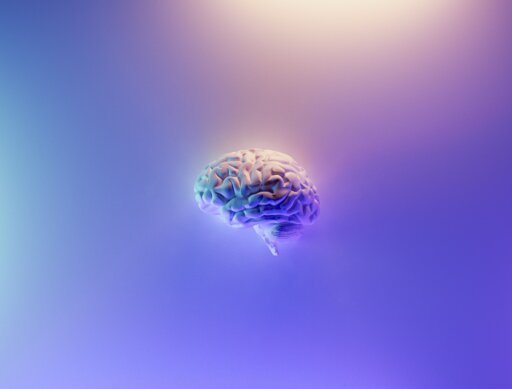Have you ever wondered where anxiety comes from in the brain? It’s a question that has fascinated scientists and researchers for years. Anxiety, a feeling of fear or unease, can have a profound impact on our lives, affecting our physical and mental well-being. Understanding the origins of anxiety within the brain could provide valuable insights into developing better treatments and interventions. In this article “Where Does Anxiety Come From In The Brain”, we will explore the possible sources of anxiety in the brain and shed light on this complex and often misunderstood emotion. So, let’s embark on a journey to uncover the mysteries of anxiety and discover the inner workings of our brain.
Neurotransmitters and Anxiety
Understanding Anxiety
Anxiety is a common emotion experienced by individuals in response to stressful or threatening situations. It is characterized by feelings of apprehension, uneasiness, and worry. While it is normal to feel anxious from time to time, anxiety disorders are a more persistent and excessive form of anxiety that can interfere with daily life.
The Anatomy of the Brain
Understanding the anatomy of the brain is crucial in comprehending the origins of anxiety. Several key brain regions play significant roles in anxiety, including the amygdala, prefrontal cortex, and hippocampus.
Key Brain Regions Involved in Anxiety
The amygdala, often referred to as the “emotional center” of the brain, is one of the primary regions involved in anxiety. It is responsible for processing and interpreting emotions, particularly fear and anxiety-related responses. When a perceived threat is detected, the amygdala triggers the release of stress hormones and activates the body’s fight-or-flight response.
The prefrontal cortex, located at the front of the brain, is responsible for executive functions such as decision-making, impulse control, and emotion regulation. In individuals with anxiety disorders, the prefrontal cortex may exhibit abnormalities, leading to difficulties in regulating anxiety responses effectively.
The hippocampus, a region involved in memory formation and consolidation, also plays a crucial role in anxiety. It helps contextualize and recognize potential threats, allowing for appropriate responses. People with anxiety disorders often exhibit alterations in the functioning and structure of the hippocampus.
Role of the Amygdala
The amygdala plays a significant role in anxiety by recognizing and responding to potential threats. It initiates the body’s stress response by releasing stress hormones like cortisol and adrenaline. In individuals with anxiety disorders, the amygdala may become hyperactive, leading to heightened anxiety responses even in non-threatening situations.
Influence of the Prefrontal Cortex
The prefrontal cortex is responsible for regulating emotions and decision-making processes. It helps in evaluating potential threats and determining appropriate responses. In individuals with anxiety disorders, the prefrontal cortex may exhibit reduced activation, leading to difficulties in effectively regulating anxiety responses.
Contribution of the Hippocampus
The hippocampus aids in storing and retrieving memories, including those associated with anxiety-provoking situations. It helps contextualize and accurately assess potential threats. In individuals with anxiety disorders, the hippocampus may be smaller in size or function less efficiently, leading to difficulties in accurately evaluating and responding to perceived threats. Neurotransmitters, chemical messengers in the brain, play a crucial role in anxiety regulation. Imbalances or abnormalities in specific neurotransmitters can contribute to the development and persistence of anxiety disorders.

Role of Serotonin
Serotonin, often referred to as the “feel-good” neurotransmitter, is involved in regulating mood and emotions. It helps modulate anxiety and fear responses. Low levels of serotonin have been associated with increased anxiety levels, while medications that increase serotonin availability, such as selective serotonin reuptake inhibitors (SSRIs), are commonly used in the treatment of anxiety disorders.
Influence of Norepinephrine
Norepinephrine, another important neurotransmitter, is involved in the body’s stress response. It increases heart rate, blood pressure, and alertness in times of perceived threat. In individuals with anxiety disorders, there may be an overproduction or hypersensitivity to norepinephrine, leading to heightened anxiety responses.
Impact of Gamma-Aminobutyric Acid (GABA)
Gamma-aminobutyric acid (GABA) is an inhibitory neurotransmitter that helps regulate anxiety and promote relaxation. It counteracts the effects of excitatory neurotransmitters, such as norepinephrine and glutamate. Low levels of GABA have been associated with increased anxiety, while medications that enhance GABA activity, such as benzodiazepines, are sometimes prescribed for anxiety management.
Genetic Factors and Anxiety
Anxiety disorders have a significant genetic component, with studies suggesting that individuals with a family history of anxiety disorders are at a higher risk of developing the condition themselves. While specific genes associated with anxiety have not been identified, researchers believe that multiple genetic variations contribute to an individual’s susceptibility to anxiety.
Family History of Anxiety Disorders
Numerous studies have shown a correlation between family history and the development of anxiety disorders. If you have a close family member, such as a parent or sibling, who has been diagnosed with an anxiety disorder, it increases your likelihood of developing one as well.
Genetic Variations and Susceptibility
Although the specific genetic variations and genes responsible for anxiety have not been pinpointed, studies suggest that multiple genetic variations contribute to an individual’s susceptibility to anxiety. These genetic factors interact with environmental influences to determine an individual’s risk of developing an anxiety disorder.

Developmental Factors and Anxiety
Developmental factors, including childhood experiences, can significantly influence the development of anxiety disorders. Adverse childhood events and parenting styles play a crucial role in shaping an individual’s vulnerability to anxiety.
Childhood Experiences and Anxiety
Childhood experiences, such as trauma or neglect, can have long-lasting effects on an individual’s mental health. Adverse experiences during childhood, like physical or emotional abuse, can increase the risk of developing anxiety disorders later in life. Chronic stress during childhood can also alter the brain’s stress response systems, making individuals more susceptible to anxiety.
Adverse Childhood Events
Adverse childhood events, commonly referred to as ACEs, are traumatic experiences that occur before the age of 18. These events can include abuse, neglect, witnessing violence, or growing up in an unstable environment. ACEs have been linked to a higher risk of developing anxiety disorders in adulthood.
Parenting Styles and Anxiety
Parenting styles can significantly impact a child’s development and their susceptibility to anxiety disorders. Overprotective or excessively controlling parenting styles may hinder a child’s ability to develop effective coping mechanisms, leading to increased anxiety levels. On the other hand, inconsistent or neglectful parenting can also contribute to the development of anxiety disorders.
Environmental Factors and Anxiety
Environmental factors, such as stressful life events and socioeconomic factors, can influence the development and exacerbation of anxiety disorders.
Stressful Life Events
Experiencing significant life stressors, such as the loss of a loved one, divorce, job loss, or financial difficulties, can trigger or worsen anxiety symptoms. Stressful life events can overload coping mechanisms and increase the risk of developing anxiety disorders.
Chronic Stress and Anxiety
Chronic stress, resulting from ongoing exposure to stressful situations or environments, can contribute to the development and persistence of anxiety disorders. Prolonged activation of the body’s stress response systems can dysregulate neurotransmitter levels and alter brain circuitry, leading to chronic anxiety.
Socioeconomic Factors and Anxiety
Socioeconomic factors, such as poverty or low socioeconomic status, have been linked to higher rates of anxiety disorders. Limited access to resources, stressors associated with poverty, and a lack of social support can all contribute to the development and exacerbation of anxiety symptoms.

Neuroplasticity and Anxiety
Neuroplasticity refers to the brain’s ability to reorganize and form new neural connections. It plays a vital role in the development and management of anxiety disorders.
Neural Circuits and Anxiety
Anxiety disorders are associated with specific neural circuits that contribute to anxiety symptoms. These circuits involve interactions between the amygdala, prefrontal cortex, and other brain regions. Abnormalities in these circuits can lead to dysregulated anxiety responses.
Impact of Chronic Anxiety on Brain Structure
Chronic anxiety can lead to changes in brain structure, particularly in regions associated with anxiety regulation and emotional processing. These structural changes may further contribute to the persistence and severity of anxiety symptoms.
The Role of Neuroplasticity in Anxiety Management
Neuroplasticity offers hope for the management and treatment of anxiety disorders. Interventions such as therapy, medication, and mindfulness techniques can help rewiring neural connections and promoting more adaptive patterns of thinking and responding to anxiety.
Hormonal Factors and Anxiety
Hormonal imbalances can significantly impact anxiety levels. Cortisol, often referred to as the stress hormone, plays a crucial role in the body’s stress response and can influence anxiety symptoms.
The Role of Cortisol
Cortisol is released in response to stress and helps mobilize energy and increase alertness. Elevated cortisol levels can contribute to heightened anxiety responses. Individuals with anxiety disorders may exhibit dysregulated cortisol levels, leading to an increased vulnerability to anxiety.
Impact of Hormonal Imbalances on Anxiety Levels
Hormonal imbalances, such as those seen in conditions like thyroid disorders or hormonal fluctuations during the menstrual cycle, can impact anxiety levels. These imbalances can disrupt the functioning of neurotransmitters and contribute to the development or exacerbation of anxiety disorders.
Other Neurobiological Factors
Several other neurobiological factors have been associated with anxiety disorders, including brain inflammation and sleep disturbances.
Brain Inflammation and Anxiety
Emerging research suggests a link between brain inflammation and anxiety disorders. Inflammation in the brain can lead to alterations in neurotransmitter levels and brain circuitry, contributing to the development and maintenance of anxiety symptoms.
Sleep Disturbances and Anxiety
Sleep disturbances, such as insomnia or nightmares, are common in individuals with anxiety disorders. Disrupted sleep can further exacerbate anxiety symptoms and contribute to a cycle of increased anxiety and poor sleep quality.
Treatment and Management of Anxiety
Various approaches can assist in the treatment and management of anxiety disorders. These include cognitive-behavioral therapy (CBT), pharmacotherapy, mindfulness techniques, and lifestyle modifications.
Cognitive Behavioral Therapy (CBT)
Cognitive-behavioral therapy is a commonly used therapeutic approach for anxiety disorders. It focuses on identifying and challenging negative thought patterns and beliefs associated with anxiety, as well as developing effective coping strategies. CBT has been shown to be highly effective in reducing anxiety symptoms and improving overall well-being.
Pharmacotherapy
Medications, such as selective serotonin reuptake inhibitors (SSRIs) and benzodiazepines, can be prescribed for the management of anxiety disorders. These medications help regulate neurotransmitter imbalances and reduce anxiety symptoms. However, medication should always be used in conjunction with therapy and under the guidance of a healthcare professional.
Mindfulness Techniques
Practicing mindfulness techniques, such as meditation, deep breathing exercises, and yoga, can help individuals manage anxiety symptoms. Mindfulness promotes self-awareness and acceptance of present-moment experiences, reducing anxiety and promoting relaxation.
Lifestyle Modifications
Making positive lifestyle changes can have a significant impact on anxiety levels. Engaging in regular exercise, maintaining a balanced diet, getting enough sleep, and avoiding excessive caffeine or alcohol consumption are all important factors in managing anxiety. Additionally, seeking social support and engaging in activities that bring joy and relaxation can also contribute to anxiety reduction.
Conclusion: Where Does Anxiety Come From In The Brain
Understanding the complex interplay of factors involved in anxiety can provide valuable insights into its origins and potential avenues for treatment and management. By addressing the various biological, genetic, developmental, environmental, and hormonal factors that contribute to anxiety, individuals can take proactive steps towards minimizing anxiety’s impact on their lives and overall well-being.
Frequently Asked Questions:
- What part of the brain triggers anxiety? The amygdala, a key region in the brain, plays a crucial role in triggering anxiety responses. It processes emotions, including fear and stress.
- What are the 4 stages of anxiety? The stages of anxiety typically involve mild anxiety, moderate anxiety, severe anxiety, and panic. Understanding these stages helps in addressing symptoms effectively.
- What beats anxiety? Effective strategies to manage anxiety include mindfulness, deep breathing, regular exercise, therapy, and, if necessary, medication. Tailoring approaches is key.
- Can a brain scan show anxiety? Brain imaging techniques, like functional MRI (fMRI) or PET scans, can reveal patterns associated with anxiety. However, diagnoses are often based on a combination of symptoms and clinical assessments.
- How does anxiety start? Anxiety can start due to various factors, including stress, genetics, traumatic experiences, or imbalances in neurotransmitters. Identifying triggers is essential for effective management.
- How do I train my brain to stop anxiety? Mindfulness, cognitive-behavioral therapy (CBT), and relaxation techniques can help retrain the brain to manage and alleviate anxiety. Consistent practice is crucial.
- How to get rid of anxiety fast? Quick anxiety relief can be achieved through deep breathing, grounding techniques, engaging in enjoyable activities, or seeking support from loved ones.
- What is the highest level of anxiety? Severe anxiety or panic attacks represent the highest levels of anxiety. Seeking professional help is crucial for effective management.
- What is Stage 2 anxiety? Stage 2 anxiety typically involves increased symptoms, impacting daily functioning. Early intervention and appropriate strategies can prevent progression to higher stages.
- Will anxiety go away eventually? With effective treatment and coping strategies, anxiety symptoms can significantly diminish or become more manageable over time.
- Why won’t my anxiety go away? Persistent anxiety may be influenced by various factors, and seeking professional guidance helps identify root causes and develop tailored treatment plans.
- How did Kendall Jenner know she had anxiety? Public figures like Kendall Jenner may share their experiences to raise awareness. Diagnosis involves professional evaluation based on reported symptoms.
- Can untreated anxiety cause brain damage? While anxiety itself doesn’t cause brain damage, chronic stress from untreated anxiety may contribute to changes in the brain’s structure and function.
- What is anxiety brain fog? Anxiety brain fog refers to cognitive symptoms like confusion, forgetfulness, or difficulty concentrating experienced during heightened anxiety.
- Will my brain recover from anxiety? The brain is resilient, and with appropriate treatment and self-care, it can recover from the impacts of anxiety. Seeking professional help is key.
- How do I relax my anxiety muscles? Progressive muscle relaxation, stretching, and activities like yoga can help relax tense muscles associated with anxiety.
- How do I relax my mind from overthinking? Mindfulness meditation, journaling, and setting boundaries on excessive thinking can assist in calming an overactive mind.
- Can anxiety be cured naturally? While complete cure may vary, natural approaches like lifestyle changes, herbal supplements, and relaxation techniques can effectively manage anxiety for many.
- Can anxiety damage your heart? Chronic anxiety may contribute to cardiovascular issues over time. Managing anxiety is essential for heart health.
- Why is my anxiety getting worse? Worsening anxiety could be influenced by various factors, including stressors, life changes, or an underlying mental health condition. Professional support can provide insights.
- Can anxiety be 100% cured? While complete cure is not guaranteed, many individuals can achieve significant relief and improved functioning through proper treatment and self-care.
- What is the best natural anti-anxiety? Natural anti-anxiety remedies may include practices like meditation, herbal supplements (e.g., chamomile or valerian root), regular exercise, and maintaining a balanced lifestyle.
Source: Anxiety